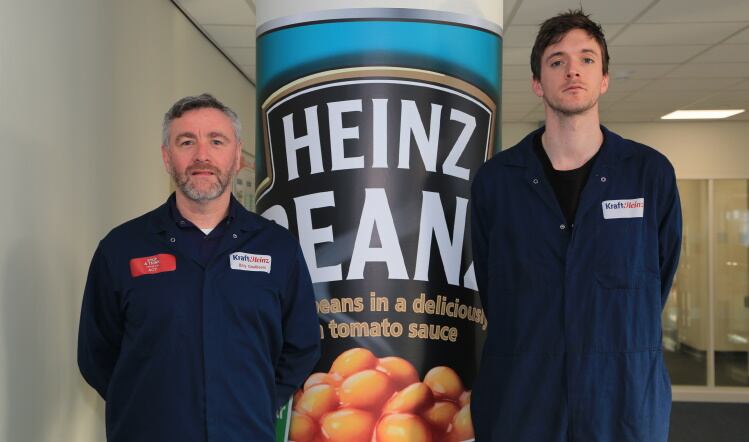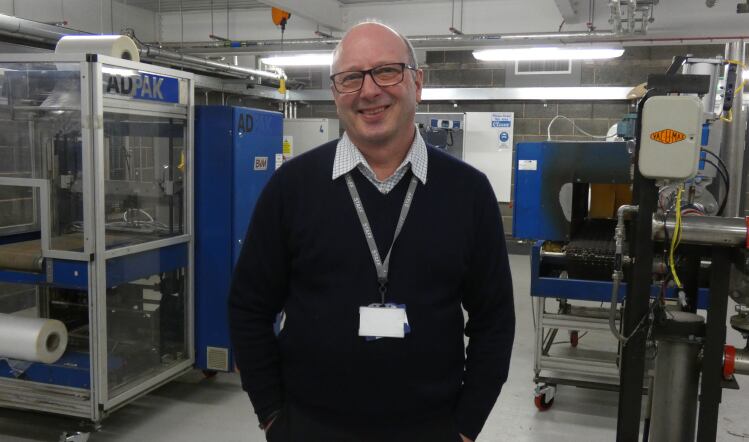In this increasingly digital world and with Industry 4.0 rapping at the factory door, the food engineer of tomorrow needs to know more than just how to fix a leaking pipe and make sure the conveyor is still running.
Being able to use a digital twin to prototype production is no easy feat if you haven’t got the skills to hand, and robots – no matter how advanced they may be – aren’t yet ready to look after themselves.
It’s this knowledge and expertise that Siemens is looking to impart to the engineering apprentices who walk through the doors of its main training centre in Manchester – or when it partners learning providers across the country, headed up by Jason Phin, training solutions and business manager for
Siemens Digital Industries. Through its Siemens Industry Training (SITrain) Digital Industry Academy, the company provides courses that cover its full portfolio of automation hardware – such as human machine interface technology, variable speed drives and programmable logic controllers (PLC) – as well as industry networking skills and associated software tools.
“You have the human networking that we’re bringing to bear, the value of which is just as much as the actual programmes themselves,” explains Phin. “Engineers and technicians from companies that don’t operate apprenticeships are going back and asking why they’re not doing the same thing.”
Skills sharing
More than 1,500 engineers from companies across the manufacturing industry pass through Siemens’ doors every year, allowing promotion of skills-sharing that might not be achievable had the provider siloed its training into sector-specific courses.
It’s precisely this focus on collaboration that has led to the success of Siemens’ training programmes. The company works with learning centres, such as the University of Salford, to provide specialist training, as part of a wider engineering course.
“For example, a degree apprenticeship uses the control technical support standard and is delivered in conjunction with the local college close to the apprentice’s location,” Phin explains. “They will probably provide a higher national diploma, then we follow that up with the partnership we have with the University of Salford, where our PLC programme certification training is embedded into a one-year top-up BEng (Hons) in automation and control.
“We really look at bringing the best of collaboration from further education and higher education, along with vendor-delivered expertise and certification, adding real industry value to academic benchmarking.”
Phin believes Siemens’ approach to training is unique, especially in its ability to draw on multiple sources to provide all the relevant information an up-and-coming food engineer would need.
“We can’t do everything, but we certainly realise where our strengths are and where the people strengths are – and all through a collaborative process, which I think is unique in apprenticeship provision,” he continues.
“Sometimes, training providers go out on their own and only provide what they can deliver. Sometimes, they don’t draw upon the strengths of other people who can assist with an area that would be of real value to the customer.”
Food sector lagging behind
While Siemens is working hard to train engineers in the ways of automation, Phin laments that the food and drink sector is lagging behind its peers in the UK manufacturing industry.
That isn’t to say that food and drink isn’t as technologically advanced, but rather that the rate of adoption is much lower than, say, the automotive or aerospace industries.
“There’s quite a lot of challenges around where food and drink manufacturers see automation as being useful within their production processes,” says Phin. “And, of course, they are also then dealing with the requirement to skill up and tool up to deal with that as well.
“If our apprentices or graduates go into the food industry, they’re looking at electrical, mechanical and digitalisation skills. Increasingly, automated systems are electrical – they rely upon inter-network communications.
“They produce vast amounts of data, which will be needed to provide the basis for food manufacturers to decide upon how they optimise, how they increase efficiency and how they take into account things like preventive maintenance. It’s going to be very much the root of how we help productivity going forward. Do people have those skills?”
Lack of engineers
That said, the opportunity to implement automation into the factory is hampered by a lack of engineers in the food and drink industry. The threat of an ageing workforce has been a constant concern for employers, with a need for fresh blood to revitalise the industry at the front of many employers’ minds.
While Phin recognises the work the food industry has put in to promote the sector to prospective apprentices, through programmes such as the Tasty Careers campaign, he thinks more could still be done.
“Generally, there’s a shortfall of engineers across all different sectors that are competing with that same talent pool in which we’re all fishing. The opportunity to ‘grow your own’ is gaining more and more momentum.
“But I think a bigger pool that needs to be addressed is the upskilling of existing people. There, you have at least Industry 1.0, Industry 2.0 and Industry 3.0 levels of knowledge that entry-level talent still has to build up to take them through to that Industry 4.0 stage. For us, we are training entry-level talent, but I’m sure there is a latent requirement to upskill existing people as well.”





